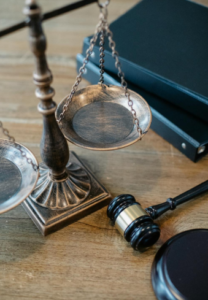A crash caused by a drunk driver can change everything in an instant. From physical injuries to financial stress, the aftermath can feel overwhelming. Medical bills start adding up, work may become impossible, and dealing with insurance companies can be frustrating. While the legal system offers options for holding the responsible driver accountable, navigating the process can be complicated. Knowing what steps to take can help you protect your rights, secure fair compensation, and focus on recovery.
Seeking Legal Help After a Crash
A collision with a drunk driver can turn your life upside down. Medical bills pile up, insurance companies push for quick settlements, and the legal system feels overwhelming. Speaking with a Drunk Driving Car Accident attorney can help you understand your options and protect your rights. These cases involve complex legal and insurance issues, making professional guidance crucial for fair compensation.
Documenting the Scene and Gathering Evidence
The moments following a crash are critical for gathering information supporting your case. If it is safe, take clear photos of the accident scene, including vehicle damage, skid marks, road conditions, and any nearby traffic signs or signals. Capturing different angles can provide a more complete picture of what happened. Injuries should also be documented, as visible wounds can serve as strong evidence when seeking compensation for medical costs and pain and suffering.
Witness statements can play a key role in establishing fault, so try to speak with anyone who saw the crash. Ask for their contact information and a brief statement about what they observed. Their testimony can support your case, especially if the drunk driver denies responsibility. The police report is another crucial piece of evidence. Officers will likely conduct field sobriety tests, take statements, and document details about the driver’s impairment. Request a copy of this report as soon as it becomes available.
Notifying the Insurance Company
Insurance companies must be informed about the accident, but their interests do not always align with yours. When speaking with an adjuster, stick to the facts and avoid admitting fault or downplaying injuries. If the drunk driver’s insurer contacts you, let your attorney handle communications to prevent any statements from being used against you later.
Understanding Compensation for Damages
A drunk driving accident can lead to significant financial, physical, and emotional hardships. Medical expenses often start with emergency care but can extend to ongoing treatments, surgeries, physical therapy, and long-term rehabilitation. Some injuries may result in permanent disabilities, requiring assistive devices or home modifications. Beyond medical bills, lost wages from missing work can create serious financial strain, and in severe cases, victims may lose their ability to earn a living altogether.
Property damage is another major factor, as vehicle repairs or replacements can be costly. Beyond these tangible losses, emotional distress and pain, and suffering also play a role in compensation. Victims of drunk driving crashes often experience anxiety, depression, or post-traumatic stress disorder (PTSD), all of which can affect their daily lives.
Taking Legal Action When Necessary
Insurance companies often try to settle claims quickly, but their offers may not fully cover the long-term effects of a serious crash. If negotiations do not lead to fair compensation, filing a lawsuit may be the best option. A legal claim can seek damages for medical expenses, lost income, pain and suffering, and any long-term financial setbacks caused by the accident. Punitive damages may also be awarded in cases where the driver’s actions were particularly reckless, serving as both punishment and a deterrent for future misconduct.
The legal process involves several steps, including filing court documents, gathering expert testimony, and presenting evidence that proves the extent of the harm suffered. The strength of a case often depends on the quality of the evidence collected, such as police reports, medical records, witness statements, and expert opinions. Since legal deadlines for filing claims vary by state, acting quickly is necessary to avoid missing the opportunity to pursue compensation.
Focusing on Recovery After the Accident
Physical and emotional healing takes time. Medical treatment, physical therapy, and counseling may all play a role in recovery. Support from family, friends, and professionals can ease the burden. The legal process may seem overwhelming, but having the right help allows you to focus on regaining stability while pursuing justice
The impact of a drunk driving accident goes beyond the initial crash. Medical treatments, lost wages, and emotional distress can linger long after the scene is cleared. Seeking legal help, gathering evidence, and understanding your options for compensation are all critical steps. While the process may seem overwhelming, taking the right approach can make a significant difference in your recovery and financial stability. Holding the responsible driver accountable not only helps you move forward but can also serve as a reminder that reckless decisions have serious consequences.









